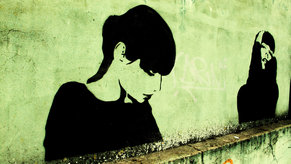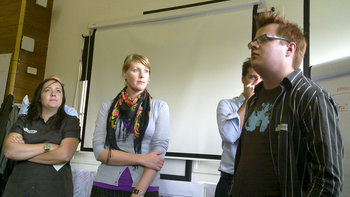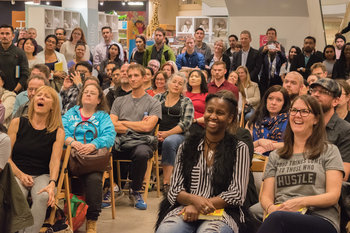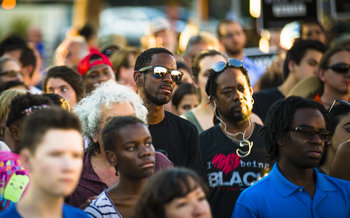
Black and White Thinking
Neglecting the grey areas between good and bad such that you view some things as completely good and others as completely bad. This generates cynicism towards anything that isn't on the good side of a bright line. For example, political polarization whereby two sides in politics view the other side in cynical terms as completely bad.Defensive Cynicism
Cynicism that is deployed as a defense. For example, a foreign tourist in a strange land who views everyone as having bad intentions simply because they are dealing with ambiguity in an unfamiliarity situation.Negative Assumptions
Making negative assumptions where there are unknowns. For example, imagining that people you have just met are terrible people.Paranoia
Unjustified mistrust of others with the feeling that they are against you when they may be on your side or indifferent to you.Disillusionment
Cynicism can surface after a period of optimism whereby you believe in something that doesn't materialize resulting in a disillusionment. This is one of the dangers of optimism and hope whereby it is good to be optimistic but also to recognize that life can be hard for a while too.Sour Grapes
Sour grapes is the process of telling yourself that anything that you can't obtain is bad in order to feel better about your life. For example, a homeowner on a budget who becomes cynical about swimming after their more wealthy neighbor builds a swimming pool.Failure Fatigue
In a culture, cynicism can result from failure fatigue whereby promises, strategies and plans fail again and again such that people rationally begin to feel that promises are unlikely to materialize. For example, an organization that has had a large number of failed projects such that new projects aren't well received.Broken Critical Thinking
Critical thinking is the process of questioning things with rational thought. This is often encouraged in educational and organizational settings. Proper critical thinking can discover that things are positive and good. However, there is often a pervasive culture in schools, universities, corporations and media where negative evaluations are considered more intelligent than positive ones. For example, a film reviewer who is viewed as intelligent for consistently ranking comedies low and bleak documentaries high.Moral Realism
Cynical views of humanity, systems or institutions can simply be realism if this distrust is deserved. For example, distrust in a corporation that is secretive and nefarious.Skepticism
Skepticism is a very high burden of proof whereby an individual doesn't accept truths in a pragmatic way but always finds a reason to doubt. Skeptics may provide a useful service in pushing for a high standard of proof and transparency. However, skepticism is also used as a mask for biases, motivated reasoning and cynicism whereby skepticism provides a logical justification to be unreasonably negative or doubtful.Pessimism
Pessimism is cynicism about the future -- regarding chances of success and assessments of risk. For example, an unsupportive parent who vastly underestimates the chances that their child's career choices will work out well.Defeatism
Defeatism is pessimism that interferes with your role and responsibilities. This is a potentially serious situation whereby someone doesn't do their job because they think a strategy, plan, tactic, process or procedure is flawed. For example, an aircraft mechanic who doesn't complete a maintenance task because they think its useless without understanding its full implications.Postmodernism
Postmodernism is a dominant academic approach in the social sciences that tends to adopt negative assumptions such as the view that all structures of society are inherently oppressive and all people are inherently motivated by a desire for power. This disregards elements of the human experience such as cooperation, bonding, trust and altruism.Anticonformity
Anticonformity is a cynical view of mainstream systems, lifestyles and culture. This can be driven by a sense of reactance whereby an individual feels forced into a system that they didn't choose. It is common for anticonformists to join a subculture and fully conform to it.Philosophical Cynicism
Cynicism was originally an Ancient Greek philosophical tradition that completely rejected the conventional pursuit of wealth, growth, status and social connectedness in favor of absolute freedom and embrace of natural impulses whereby they advocated a return to a primitive existence.Nihilism
Nihilism is the view that life and everything in it have no inherent value.Anomie
Anomie is a painful sense of disconnection from others such that you don't view yourself as part of culture. This can stem from cynicism whereby you view society and everything in it deeply flawed.Opposites of Cynicism
Attitudes that run in opposition to cynicism include optimism, pragmatism, stoicism, positivity, coolness, tolerance, forgiveness, trust, love, cooperation, kindness, compassion, openness and understanding.| Overview: Cynicism | ||
Type | ||
Definition (1) | Distrust in the goodness of things and people. | |
Definition (2) | An Ancient Greek philosophical movement that embraced absolute freedom and pursuit of natural impulses. | |
Related Concepts | ||


































